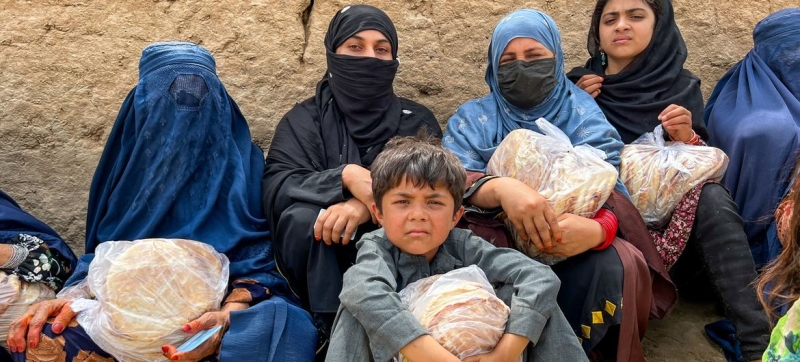
Most Afghans still live in poverty, and millions of people in the country, including children, are experiencing acute food insecurity. Afghanistan: Stopping the Destructive Cycle of Impunity Human Rights
Three years after the Taliban took control of Afghanistan, the future of the country and its people are under threat, UN High Commissioner for Human Rights Volker Türk said during an expanded interactive dialogue on the human rights situation in Afghanistan at the 57th session of the Human Rights Council.
He presented a report that, in particular, examines the human rights situation in the country from September 2023 to July of this year.
Systematic Violations
The report focuses on various areas of abuse, including gender inequality, violations against women and girls, restrictions on media freedom, and the persecution of former officials and the Hazara community.
The High Commissioner highlighted the plight of women in Afghanistan, including restrictions on freedom of movement and the imposition of a strict dress code. Such control over half the country’s population is unprecedented in the modern world, Turk said. He called the situation outrageous and amounted to systematic persecution on the basis of gender.
This puts the country’s future and development at risk, the High Commissioner said. “It pushes Afghanistan further down the path of isolation, pain and deprivation,” he said.
Humanitarian Crisis
Turk also stressed that the majority of Afghans still live in poverty, with millions of people, including children, facing acute food insecurity. At the same time, significant funding shortfalls, as well as natural disasters and climate change, are exacerbating the humanitarian crisis.
The rapporteur warned that Afghanistan could choose the path of prosperity and justice or face the threat of state collapse amid ongoing human rights violations. Respect for human rights, especially gender equality, is vital for Afghanistan’s development and stability, he stressed.
Justice and Accountability
According to the High Commissioner, a key concern is impunity for human rights violations committed by various parties in Afghanistan’s history. Türk stressed that justice and accountability are crucial to preventing further violations. He called for action at both the national and international levels, in particular cooperation with the International Criminal Court. He also asked the de facto authorities to allow the independent human rights institution to resume its work in the country.
“Human rights are not just a legal requirement: they are essential for peace, security, social cohesion and development,” the UN human rights chief said.
Segregation and oppression
In turn, the UN Special Rapporteur on the situation of human rights in Afghanistan, Richard Bennett, recalled the morality law recently adopted by the Taliban.
Read also:
UN: Afghanistan’s new ‘vice prevention’ law turns women into ‘voiceless shadows’
The law reinforces an institutionalised system of gender discrimination, segregation and oppression, Bennett told the Human Rights Council.
Marginalised groups
Bennett also told the council about the alarming situation of minorities, children, LGBTIQ people, human rights defenders and journalists, as well as older people and people with disabilities, who are suffering as the humanitarian crisis worsens.
“Faced at a crossroads, the Taliban appear to have chosen a direction that leads only back to the appalling conditions of the late 1990s. “Collectively, we must persuade them to turn around and go in a different direction,” the Special Rapporteur said.
Breaking the Cycle of Impunity
“Unfortunately, impunity has reigned in Afghanistan for generations. It is one of the causes of conflict and repression in the country. Failure to effectively combat the cycle of impunity only emboldens the repressive Taliban regime and reduces the likelihood of genuine and lasting peace in Afghanistan and beyond,” the expert noted.
He called on the international community to include women and civil society representatives in all processes concerning the country’s future and to keep human rights in Afghanistan at the forefront of its attention.
